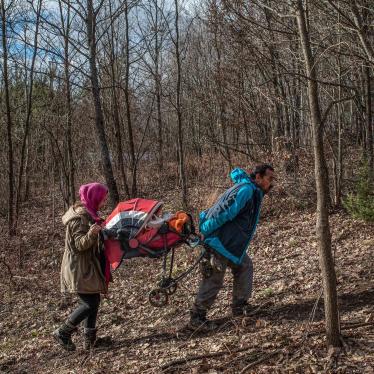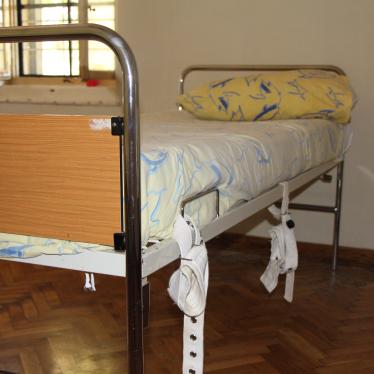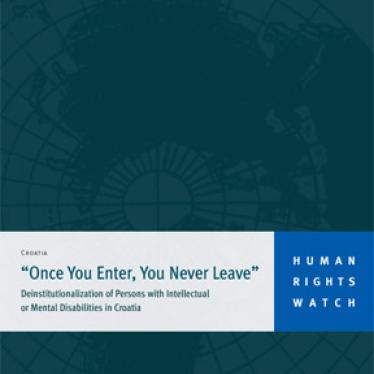Imagine being taken against your will to a hospital by a family member and – without warning or explanation – tied to the bed and left overnight without even being able to use the toilet.
That is what happened to Martina, a 41-year-old woman with a psychosocial disability I met in Zagreb, Croatia. She told me that, desperate, she finally wet the bed.
Croatian law allows depriving people with intellectual or psychosocial disabilities of their right to make decisions for themselves. People deprived of legal capacity – like Martina and 18,000 others – can be placed in institutions without their consent.
In 2014, Croatia adopted a new Mental Health Law that requires written consent for treatment, an attempt to comply with the United Nations Disability Rights Convention, which it signed in 2008. However, under the law, this consent is not necessary if the person is deemed “not capable” of giving their consent and the treatment is judged to be in their “best interests.”
When I visited last year, I heard many accounts of people being physically restrained, forcibly medicated, or put in seclusion rooms for prolonged periods – including children. There are no official guidelines for the use of restraints by the staff.
Forcing people to endure coercive treatment against their will violates their fundamental rights.
In his February 2013 report, the UN special rapporteur on torture, Juan Méndez, said that involuntarily treatment and confinement runs counter to the UN Disability Rights Convention, and that prolonged seclusion and restraint can amount to torture when used against people with disabilities.
In his new thematic report on children, Méndez noted that caregivers in institutions use physical restraints as long-term solutions to self-harm by children, although lack of emotional companionship and attention may actually lead to self-abuse.
This week, the UN Human Rights Committee reviewed steps the Croatian government has taken to abolish the use of enclosed restraint beds in psychiatric facilities, while next week another UN committee will review Croatia’s compliance with the Disability Rights Convention, including measures taken to prevent treatment without consent, seclusion, and the use of restraints for people with disabilities. Both should urge Croatia to ban restraints, solitary confinement, and coercive medical intervention immediately.
Croatia should ensure that all services for people with disabilities are based on their free and informed consent, and repeal laws that permit involuntary treatment and confinement. Croatia should establish voluntary community-based services and support services so that people with disabilities can remain autonomous and independent. And it should replace guardianship with assistance and support that respects people’s autonomy.
Martina remains traumatized by what happened to her. “I wish there was someone who could stop this from happening to other people,” she told me.









